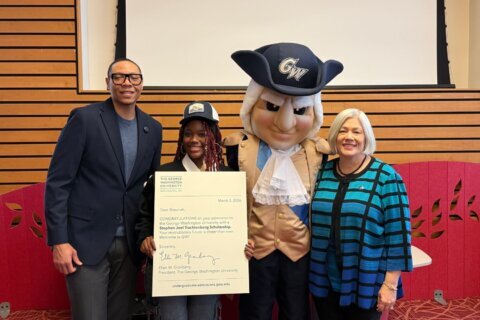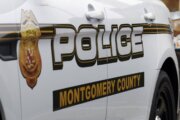About two weeks before the D.C. school year began, Dr. Carlene Reid started hearing from concerned parents.
Reid, Ward 8’s representative on the State Board of Education, heard stories about children not yet eligible to be vaccinated who live with immunocompromised people, and parents wondering what options they had if they didn’t believe in-person learning was safe.
She then received a call from a mom seeking a virtual option for her third-grader because she was caring for her own mother, who has Stage 4 lung cancer. Another parent, of honor roll students at a D.C. charter school, faced losing her kids’ spots, because she wanted them to remain at home.
And the most notable, Reid said, came from a mom who was battling the coronavirus and called, gasping for breath, to ask what to do because she couldn’t take her child to school.
The scenarios Reid learned of feature many of the same details that D.C. council members heard from parents and educators, prompting the council on Tuesday to unanimously pass the Protecting Our Children Emergency Amendment Act of 2021.
In response to concerns about testing, quarantine guidelines, building maintenance and lack of a virtual option, the legislation will offer virtual learning more broadly, increase testing and require schools to notify parents of a coronavirus exposure at the classroom level.
In total, 350 virtual learning slots have been added; the school system’s asymptomatic testing program will test 20% of students at schools every week and the definition of an excused absence will be updated. Charter schools will also be able to offer virtual learning, but the program must include at least 3% of students.
“[The bill is] a step in the right direction,” Reid told WTOP. “This is the first time hearing any sort of concessions based on the needs of the families who have reached out to me.”
‘We pushed back hard’
The council’s legislation came after its multiple attempts to urge Mayor Muriel Bowser to take action. Bowser has repeatedly advocated for in-person learning, and before the council vote, she sent a letter to Chairman Phil Mendelson asking it to reconsider.
Health officials maintain in-person learning is safe with the proper precautions in place, but parents, teachers, and council members said there are inconsistencies with the city’s precautions.
So after listening to hours of testimony across two hearings in recent weeks, the council took action, expressing a desire to do more but noting its hands were tied “because the executive insists that anything more would have a fiscal cost,” Mendelson said.
Now, the city is reviewing the details of the bill, hoping to create a plan that will minimize disruption to the current in-person learning landscape. Paul Kihn, the city’s deputy mayor for education, said D.C.’s local education agencies will have to come up with their own approaches in alignment with the legislation.
“We pushed back hard on that bill, because we know how hard our students and teachers have been working for months to prepare to be in person,” Kihn told WTOP. “And we didn’t want that [disruption]. We know that schools have a lot of work to do if they’re going to have new virtual students.”
The council is slated to continue its discussion around schools, with one proposed bill calling for all eligible students to be vaccinated by December. A public hearing on the subject is expected to be held later this month. Bowser has already required vaccination for government employees, which also includes school workers.
Becky Reina, who helped create the group DC Families for COVID Safer Schools, said the new school guidelines are “a really big win for some families,” but added there are further issues to address, like disenrollment and child services referrals.
She said, however, that schools are seeming to grow more aware of some of the common issues.
“I don’t really understand why the mayor and executive agencies have been so intransigent on this, because so many regional jurisdictions are doing such a better job,” Reina said. “I don’t know why it’s been such a bright line for the mayor.”
And as new calls come in to Reid, she said consistent communication is key to overcome what she describes as decisions being made “in a bubble.”
WTOP’s Neal Augenstein contributed to this report.








